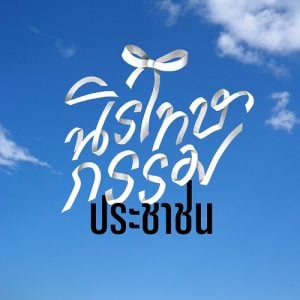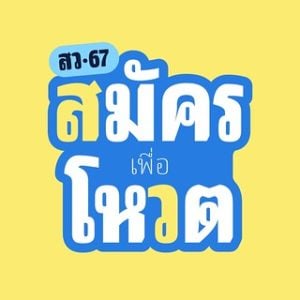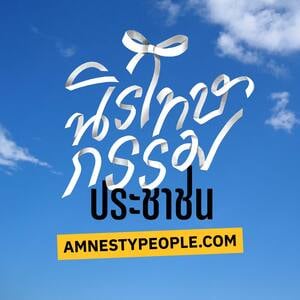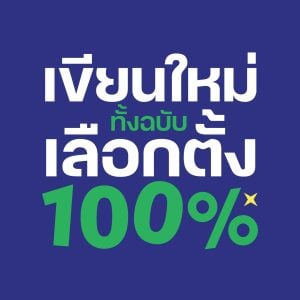by Jayshendra Karunakaren
This practice of the suppression of freedom of expression is applied in every country in Southeast Asia, where rising political dissatisfaction in every country has led to harsh repression by governments. This is especially so with the mobilization of activism and the proliferation of dissenting voices on social media, online independent newspapers and the blogosphere. This phenomenon has been countered with stricter online media controls, litigation and intimidation.
Almost every country in Southeast Asia possesses defamation and sedition laws that criminalizes any online expression that criticizes the government, and in some countries, statements on race and religion that are perceived as insulting. The length of sentencing varies from a few months to as long as 20 years in prison. The law enforcement system in all these countries also has the power to block websites and censor content (also known as the ‘take down’ provision). Internet service and content providers in every country are required to apply for licenses with a government agency, and often practice self-censorship for fear of their licenses being revoked. Contradictorily, almost every country (bar Brunei) enshrines protecting freedom of expression in their constitutions.
This article compares these different criminalisation and censorship systems in every country in Southeast Asia.
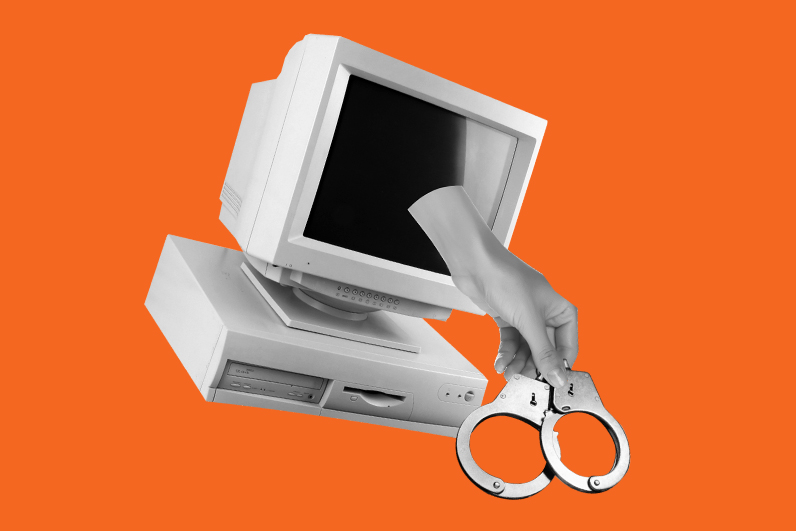
Thailand
On 16 December, 2016, the National Legislative Assembly passed a revision to the 2007 Computer Crime Act in a 168-0 vote with 4 abstentions. While the redrafting of the 2007 cybercrime law was intended to combat phishing and online theft, it has been widely observed that the rewriting of the new law will be used to silence critics of the National Council for Peace and Order and the monarchy. Section 14 of the new amendments states that any person who imports false data into a computer system that perceived to “damage national security, public safety, economic security and infrastructure, or cause panic among the public” is liable for a maximum 5-year jail sentence and a maximum fine of THB100, 000.
Furthermore, any individual who imports data into a computer system that is deemed as obscene, offensive to the kingdom or is related to terrorism threats will also be prosecuted. This danger posed by Section 14 is that the authorities have full discretion to determine which statement is damaging to national and public security. Such heavy retribution also threatens service providers (ISPs) as stipulated by Section 15. This would result in self-censorship to avoid retribution. The only way that ISPs would exempt itself from the penalty is if it complies with a minister’s order to block or remove ‘offensive’ data.
In addition, the new amendments stipulate that a “Computer Data Screening Committee” will be formed. It will consist of 9 members of a government-appointed panel. The committee has the power to recommend an authority to apply for a court order to block or remove ‘offensive’ content.
Philippines
The criminalisation of freedom of expression is legalised by the Cybercrime Prevention Law or Republic Act 10175. This law criminalises online defamation and libel. It has been used frequently to target journalists and citizens who publish criticisms of government misconduct online. This law also has a “take down” provision which empowers the Department of Justice to issue an order (without a warrant) to restrict or block access to ‘libellous’ computer data and to monitor online information. It also authorizes the police to order the shutdown of websites. Among the other acts prohibited by this law are cybersex, online child pornography, illegal access to computer systems (hacking), online identity theft and spamming.
This law dramatically increases the penalty for computer-related libel, with a minimum punishment of 6 years. This is a twelve-fold increase from the previous sentence of 6 months. The maximum sentence that can be applied is 12 years of incarceration, a doubling of the previous sentence.
The law was signed into effect by then-President Benigno Aquino III on September 12, 2012. Although several legal cases have been filed in the Philippines Supreme Court for the law to be declared unconstitutional due to its violation of the constitutional guarantee for freedom of expression and Philippines’ international mandate from the ICCPR, the law remains in effect.
Vietnam
Since 2004, several laws have been enacted to restrict online freedom of expression and accords sweeping and discretionary power to the government to monitor, investigate and prosecute online information. The first of these laws is the 2004 Law on National Security (Law No. 32/2004/QH11) which empowers state agencies responsible for protecting national security to examine communications equipment, computer systems and computer networks for any threat to national security.
In August 2008, the Ministry of Information and Communication (MIC) issued Decree No. 97/2008 which criminalises “abuse” of the Internet, which includes “opposing the state”, “undermining national security and social order and safety” and “destroying national fine customs and traditions”. A controversial example of how this act is implemented is that it prohibits bloggers from providing links to information deemed as “opposing the state” or “spreading information that distorts, slanders and hurts the prestige of organisations.” The “take down” element of this law is also present as the government has the power to force internet service providers (ISPs) to hand over user data and to block or remove content.
In April 2010, the Hanoi People’s Committee enacted Decision No. 15/2010, ordering thousands of Internet cafes and other Internet access providers in Hanoi to install a government-supplied software on computers which is widely believed is purposed to trace user activities and block access to webpages. This law empowers local authorities to inspect Internet cafes.
In July 2013, Prime Minister Nguyen Tan Dung signed into law Decree No. 72. Article 5 of this law bans online information that is perceived to “oppose the Socialist Republic of Vietnam”, threaten national security and social order, contradict national tradition, reveal state secrets, and provide false information.
In terms of the penal code, Article 79 criminalises “activities aimed at overthrowing the people’s administration” while Article 88 bans “propaganda against the Socialist Republic of Vietnam” The former code has a sentencing of between 5 to 20 years while the latter code has a conviction of between 3 to 20 years. Article 245 criminalises individuals who cause public disorder, with a penalty of a fine between 1 million to 10 million dong and a maximum imprisonment sentence of 2 years. Article 258 criminalises people who “abuse democratic freedoms to infringe upon the interests of the State, the legitimate rights and interests of organisations and/or citizens”, carrying a maximum conviction of 7 years in prison.
In a case which resulted in heavy sentencing, the Ho Chi Minch City People’s Court sentenced Tran Huynh Duy to 16 years’ imprisonment followed by 5 years of house arrest due to his role in managing several blogs on economic and social issues. In another high-profile case, prominent blogger Nguyen Huu Vinh (his online alias is Anh Ba Sam) and his assistant Nguyen Thi Minh Thuy was charged for running a blog which compiled daily news on public affairs from sources which included overseas Vietnamese dissident groups.
Indonesia
A presidential decree has provided the foundation for Law No. 11/2008 on Electronic Information and Transaction (also known as the ITE Law), which has been used to prosecute individuals who have been accused of defaming or insulting a religion online.
Criminalisation of freedom of expression in Indonesia lies very much on the use of blasphemy laws. In 1965, President Sukarno enacted Presidential Decree No.1/PNPS/1965 on the Prevention of “Religious Abuse and/or Defamation”, which is also known as the blasphemy law. It was passed to accommodate requests from Islamic organisations to prohibit mystical indigenous beliefs which they believed could tarnish existing religions in Indonesia. Article 4 of the law stipulates that the maximum sentence for these ‘crimes’ is 5 years.
An example of a high-profile case is that of the case of Abraham Sujoko who was convicted in June 2014 in a district court under the ITE Law for posting a video of himself on YouTube stating that the Qa’bah was a mere stone idol and that Muslims should not pray facing the direction of the Qa’bah. He was sentenced to two years of imprisonment and a fine of three and a half million rupiah (US$288).
In another case, Sebastian Joe was sentenced to 4 years’ incarceration in November 2012 by a district court (later increased to 5 years by the High Court) under the ITE Law for allegedly posting statements on Facebook that insulted Islam and that he was creating a new religion.In a similar case, Alexander An (Aan) was sentenced by a district court to 2 and half years in prison and a fine of 100 million rupiah for posting statements on Facebook that were deemed insulting to Islam and the prophet Muhammad.
Malaysia
The main legal instrument to repress online freedom of expression is the Sedition Act of 1948. It imposes criminal penalties on any person who conducts any ‘seditious’ acts, including the publication of any ‘seditious’ material. Section 3(1) defines ‘sedition’ as a speech that is regarded to “bring into hatred or contempt or excite disaffection against” the king or the ruler of any state in Malaysia, or to “raise discontent or disaffection” amongst the inhabitants of Malaysia. In addition, Section 3(ae) also includes as sedition any expression which has a tendency “to promote feelings of ill will, hostility, or hatred between persons or groups of persons on the grounds of religion. Any criticism of the government is treated as seditious on the grounds of causing “discontent among the inhabitants of Malaysia.”
The 2015 amendments strengthened the government’s capacity to prosecute internet and social media users by adding the offense of “propagating” seditious material. The amendments not only has a ‘take down’ provision but it also prohibits any person who circulated the material from accessing “any electronic device”. Anyone who fails to comply with removing ‘seditious’ content online is liable for up to 3 years of imprisonment.
High-profile cases include the conviction of J. Gopinath under the Sedition Act on June 19, 2014 for allegedly posting a “lewd and vulgar” statement about Islam on his Facebook account in September 2012. He was fined RM 5,000 (US$1210). In a case about ‘defaming’ Malaysia’s federated monarchy, Wan Ji Wan Hussain was charged with sedition on November 5, 2012 for remarks on Facebook that were viewed as insulting to the sultan of Selangor. Criticisms of the government’s handling of religious issues have also resulted in arrests and sedition charges.
Online news websites have also been targets. In March 2015, three editors, the chief executive, and the publisher of the online news portan The Malaysian Insider (TMI) were
arrested for sedition and violation of the Communications and Multimedia Act. Their “offense” was to report that the Malaysian Council of Rulers had rejected a proposal to
amend federal law to allow the implementation of Sharia-based punishments in the state of Kelantan.
Myanmar
Despite relaxation of press censorship laws by the former Thein Sein government, a trio of laws that restrict online freedom of expression remain. These laws, which were adopted by Myanmar’s military junta, are the 1996 Computer Science Development Law, the 2000 Web Regulations, and the 2004 Electronic Transactions Law (ETL).
The Computer Science Development Law criminalises any individual who, through an online medium, carries out an act that undermines the “state security, the prevalence of law and order and community peace,” and criminalises the importation, possession or use of a computer without a license from the Ministry of Communication. The 2000 Web Regulations prohibit content that is “directly or indirectly detrimental to the interests of the Union of Myanmar.”
However, a highly used law in prosecutions is the ETL, which has been used to target bloggers Nay Phone Latt and Thin July Kyaw in 2007 and activist and comedian Zarganar in 2008. Under Section 33 of this law, internet users could be sentenced to 5 years in prison for any act that is “detrimental to the security of the State or prevalence of law and order or community peace and tranquillity or national solidarity or national economy or national culture,” and for receiving or sending state secrets. Section 34(d) also allows for a 5 year prison term for anyone found guilty of “creating, modifying or altering of information” and/or its distribution that would harm the interests of any individual or organisation.
While the above laws were passed during military dictatorship, the 2013 Telecommunications Act was passed after the democratic transition. Section 66(d) of this act allows the imposition of criminal penalties of up to three years in prison for “extortion of any person, coercion, unlawful restrictions, defamation, interfering, undue influence, or intimidation using a telecommunications network.” This law was invoked by the Thein Sein government to prosecute comments on social media deemed “insulting” to the government or the military, and continues to be used to prosecute offensive or “insulting” speech.
In late February 2015, freelance photojournalist Aung Nay Myo was arrested for uploading a satirical post to Facebook that mocked the president’s relationship with the military. In October 2015, two activists, Chaw Sandi Tun and Patrick Kum Ja Lee, were arrested in separate incidents for posting satirical content on Facebook that was perceived as being critical of the army. In the next month, poet and activist Maung Saung Kha was arrested for for violating Section 66(d) after he posted a poem on Facebook that implied he had a tattoo of the president. In the case of Nay Phone Latt and Thin July Kyaw, the former received a sentence of 15 years in jail under the ETL in 2007 while the latter was sentenced to 2 years and 6 months under the same law. Nay Phone Latt’s ‘crime’ was for allegedly spreading news on his blog about the 2007 Saffron Revolution while Thin July Kyaw’s ‘crime’ was for funding activists in exile. Zarganar received 45 years in prison for speaking to foreign media about the homeless situation of millions of victims from Cyclone Nargis.
Singapore
The most popular law used for criminalising online freedom of expression is the Sedition Act. This law bans public discussion (including on the internet) of most matters of race, religion, or sexuality, as well as direct and vocal criticism of the government. The maximum penalty for offenders is 3 years, and 5 years for repeat offenders.
The regulatory media body in Singapore, the Media Development Authority (MDA), requires news websites to apply for individual licenses that are subject to annual renewal and to removal orders within 24 hours. In addition, major websites are banned from “advocating homosexuality or lesbianism.”
Bloggers are often targeted. In a prominent case in 2015, Roy Ngerng Yi Ling was ordered to pay S$150,000 (US$111,000) in defamation charges to Prime Minister Lee Hsien Loong for alleging corruption in the management of Singapore’s retirement savings plan in 2014. Another blogger, Amos Yee, was sentenced to 4 weeks in jail for uploading an allegedly obscene image and making remarks deemed insulting to religion in a video he posted.
Cambodia
On August 19, 2016, the repressive Hun Sen-led government issued a sub-decree which upgraded the status of an anti-cybercrime unit (also known as the “Cyber War Team”) from the Council of Ministers’ Press and Quick Reaction Unit. This sub-decree accorded the unit the power to “investigate and take measures in accordance with the law with regard to actions via the internet of instigation, insult, racial discrimination, and generation of social movements.” This unit is also responsible for monitoring and countering “incorrect” information from news outlets and social media.
On November 30, the government tabled a draft telecommunications law to the National Assembly for debate and review. Controversially, the Cambodian People’s Party adopted the new law (Law on Telecommunications) without parliamentary debate and without review by civil society organisations. This law accords the government arbitrary powers to order telecommunication operators, to secretly monitors and record telecommunications, and to imprison people for using telecommunications in a manner deemed to endanger national security”. Under Article 6 and 7 of this law, the Ministry of Posts and Telecommunications (MPTC) is authorized the order service providers to hand over data, systems and equipment. The maximum sentence for offenders is 15 years.
Criminal and penal codes have also been used to silence dissenters who express critical statements online. In March 2016, Kong Raya, a university student, was sentenced to 18 months in prison for the charges of “incitement to commit a felony”. His ‘crime’ was to call for a “colour revolution” and to “change the cheap regime running Cambodian society” on Facebook. In another high-profile case, Hun Manet, the son of Prime Minister Hun Sen, launched a lawsuit against Chham Chhany for defaming the former’s family on Facebook.
While the government has not restricted access to the internet or censor online content, there are credible reports that government agencies were monitoring private online communication. In early 2011, the Phnom Penh Post reported that the Minster for Posts and Telecommunications (MPTC) So Khun asked mobile phone operators to “cooperate in blocking websites” that “affect Khmer morality and tradition and the government.”
Laos
The legal framework to oppress online freedom of expression lies in constitutional provisions and in the criminal code. Article 23 of the Constitution states that all “cultural and mass media activities” contrary to “national interests” or “traditional culture and dignity” are prohibited.
Article 65 of the Criminal Code prohibits “slandering the Lao People’s Democratic Republic, or distorting the guideline of the party and policies of the government or circulating false rumours causing disorder” for the purpose of weakening the state. Offenders are liable to be punished with 5 years’ imprisonment and a fine ranging from 500,000 Kip (US$62) to 10 million Kip (US$1,223).
This legal framework is applied to online communication through Decree 327, which was adopted on 16 September 2014 and enforced on 10 October 2014. Under this decree, internet users who disseminate or circulate “untrue information for negative purposes against the Lao People’s Revolutionary Party and the Lao government” which would threaten the “peace, independence, sovereignty unity and prosperity of the country” are criminalised. In addition, any content which is perceived to “divide the solidarity among ethnic groups” are banned. Such a broad and vague provision effectively criminalizes any online criticism of the government.
Victims of such these provisions include Phout Mitane, who was detained by the police on 21 May 2015 without an arrest warrant for posting photos on Facebook allegedly showing police officers extorting money from her brother over a traffic violation. She was fined 1 million kip (US$123). In another case, Chanthaphone, a civil servant from the Natural Resources and Environment Department, was detained on 25 June 2015 (for a month) for releasing information about the granting of a land concession to Chinese investors on Facebook. On 18 September 2015, Bouthanh Khammavong was sentenced by a court in Vientiane to four years and nine months in prison for criticising the Lao government on Facebook. In a similar case, Somphone Phimmasone, Lodkam Thammavong and Soukan Chaithad are currently detained in Vientiane’s Phonethanh Prison for criticizing the government about alleged corruption, deforestation and human rights violations.
Brunei
While arguably one of Southeast Asia’s most undemocratic countries, Brunei has a relatively uncensored and active online community. However, the government monitors private e-mail and internet chatroom exchanges that are suspected of containing subversive and religious extremism. Brunei is unique in that its constitution does not contain any provision that protects the freedom of expression of its citizens.
Brunei does have an institutionalised legal system that represses online freedom of expression. The Sedition Act restricts the freedom of speech and press, and requires local newspapers to obtain operating licenses and government vetting and approval of foreign editors, journalists and printers. The Act criminalises any challenges to the authority of the royal family and the Malay Islamic Monarchy concept. The latter concept, which is the national ideology of the Bruneian state, proclaims Islam as the state religion and the protection of the rights and privileges of the Brunei Malay race. In addition, Brunei’s sharia-based penal code criminalises contempt or insult of the sultan and the administration of sharia laws. Due to threat of retribution from these laws, journalists often practice self-censorship.
Internet service providers and internet café operators are required to register with the director of broadcasting in the Prime Minister’s Office. The government blocks websites with sexually explicit material and internet companies reserve the right to cut off internet access without prior notice.
The table below shows a summary of the criminalisation and censorship regimes against online freedom of expression in Southeast Asia:
| Country | Name of Law(s) | Prohibitions by Law(s) | Maximun penalty |
| Thailand | 2007 Computer-related Crimes Act | Imports false or forged computer data cause damage to that third party or the public | 5 years |
| Imports false computer likely to damage the country’s security or cause a public panic | |||
| Imports any computer data related with an offence against the Kingdom’s security | |||
| Philippines | 2012 Cybercrime Prevention Law | Online defamation and libellous information | 12 years |
| Vietnam | Penal Code | activities aimed at overthrowing the people’s administration, (Article 79) | 5 to 20 years |
| propaganda against the Socialist Republic of Vietnam (Article 88) | 3 to 20 years | ||
| cause public disorder (Article 245) | 2 years | ||
| “abuse democratic freedoms to infringe upon the interests of the State, the legitimate rights and interests of organisations and/or citizens” (Article 258) | 7 years | ||
| Indonesia | Presidential DecreeNo.1/PNPS/1965,(ITE Law) | Defaming or insulting a religion online | 5 years |
| Malaysia | 1948 Sedition Act (amendments in 2015), | ‘Seditious’ acts, including the publication of any ‘seditious’ material and/or “propagating” seditious material | 20 years |
| Myanmar | 2004 Electronic Transactions Law | Any act that is “detrimental to the security of the State or prevalence of law and order or community peace and tranquillity or national solidarity or national economy or national culture,” and for receiving or sending state secrets. “Creating, modifying or altering of information” and/or its distribution that would harm the interests of any individual or organisation. | 5 years |
| 2013 Telecommunications Act | “Extortion of any person, coercion, unlawful restrictions, defamation, interfering, undue influence, or intimidation using a telecommunications network.” | 3 years | |
| Singapore | 1948 Sedition Act | Public discussion of most matters of race, religion, or sexuality, as well as direct and vocal criticism of the government | 3 years, 5 years (repeat offense) |
| Cambodia | 2015 Telecommunications Law | Using telecommunications in a manner deemed to endanger national security | 15 years |



